Hidden treasures fill our trash cans while perfectly good alternatives sit on store shelves.

Walk through any American home on garbage day, and you’ll witness one of the most wasteful habits of modern life. We toss items that could serve us for years, then drive to stores to buy identical replacements wrapped in even more packaging. This cycle costs families hundreds of dollars annually while contributing to environmental problems that affect everyone.
The average American produces 4.9 pounds of trash daily, yet experts estimate that 75 percent of our waste stream could be recycled or reused. Most people focus on obvious reusables like water bottles and shopping bags, but dozens of other everyday items deserve rescue from the garbage bin.
1. Glass jars transform into storage powerhouses that outlast expensive alternatives.
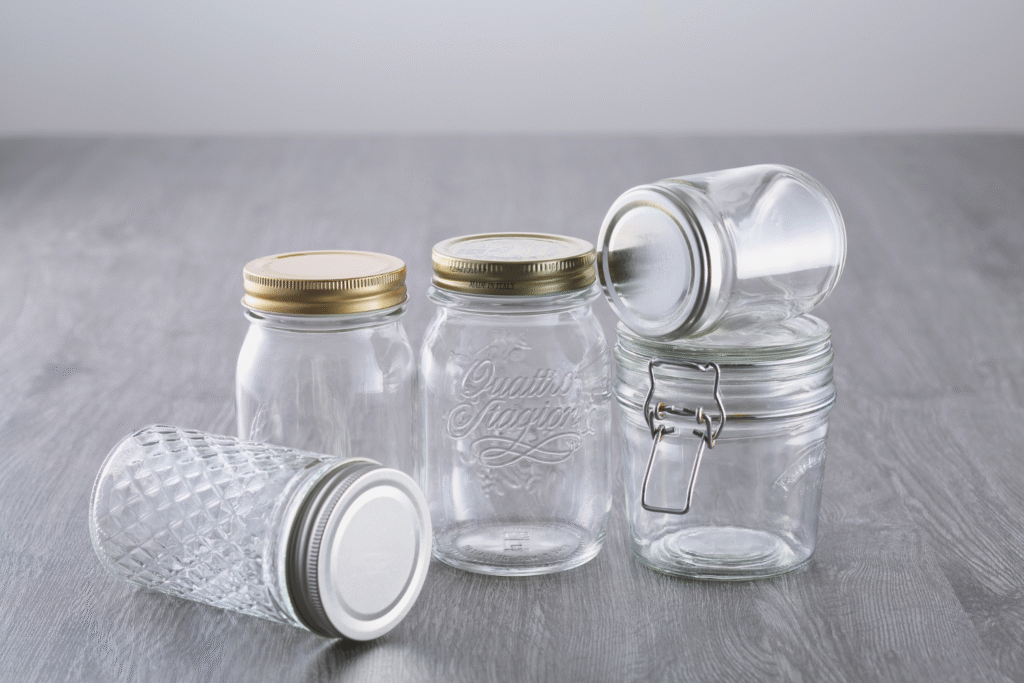
Every week, millions of perfectly good glass containers get buried in landfills after holding everything from pasta sauce to pickles. According to the EPA’s National Overview on Materials and Waste, Americans generate over 35 million tons of glass annually, yet these containers can be reused indefinitely without losing their structural integrity. Food-grade glass jars offer airtight seals that keep pantry staples fresher than many store-bought storage systems.
Smart households treat glass jars like building blocks for organization throughout the home. Bathrooms benefit from clear containers that corral cotton swabs and hair accessories, while workshops use them to sort screws and small hardware. The transparency eliminates guesswork, and the variety of sizes means there’s usually a perfect fit for any storage challenge.
2. Plastic food containers deserve multiple lives beyond their original contents.
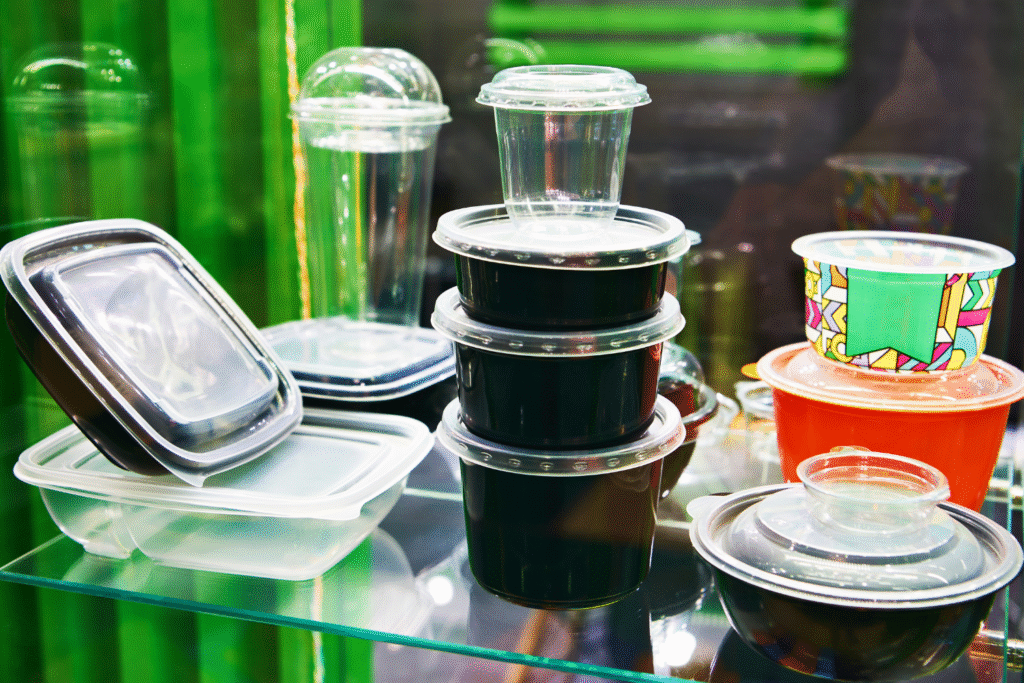
Yogurt cups, takeout containers, and margarine tubs represent untapped organizational potential that most people overlook completely. These containers prove their durability by surviving manufacturing, shipping, and initial use, yet we discard them after a single purpose, as reported by the EPA’s waste management studies. Research shows that proper reuse of food containers can reduce household waste by significant margins while providing free storage solutions.
Beyond kitchen duty, these versatile vessels excel at craft organization, garage storage, and even gardening applications. Their lightweight nature makes them ideal for seed starting, paint mixing, and travel organization. Many feature stackable designs that maximize storage efficiency while costing nothing extra.
3. Paper towel and toilet paper tubes create surprisingly useful household tools.
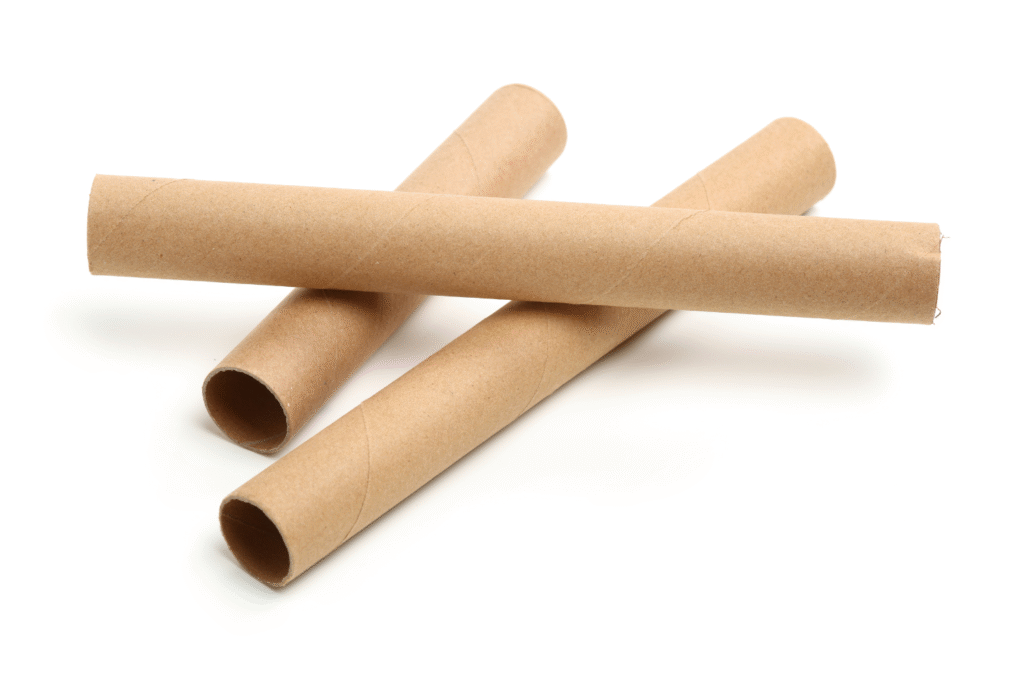
Those cardboard cylinders that end up in recycling bins actually possess engineering properties that make them valuable for multiple household applications. According to the American Forest and Paper Association, the average American family discards dozens of these tubes annually, missing opportunities to repurpose their structural strength and convenient sizing. The sturdy cardboard construction withstands surprising amounts of weight while maintaining its shape over time.
Creative households use these tubes to organize everything from extension cords to gift wrap, taking advantage of their natural tendency to prevent tangling and creasing. Drawer organization becomes effortless when tubes compartmentalize socks, underwear, and small accessories. Gardeners appreciate their biodegradable nature for starting seedlings, while crafters value their clean cylindrical shape for countless projects.
4. Shopping bags possess remarkable durability that extends far beyond groceries.
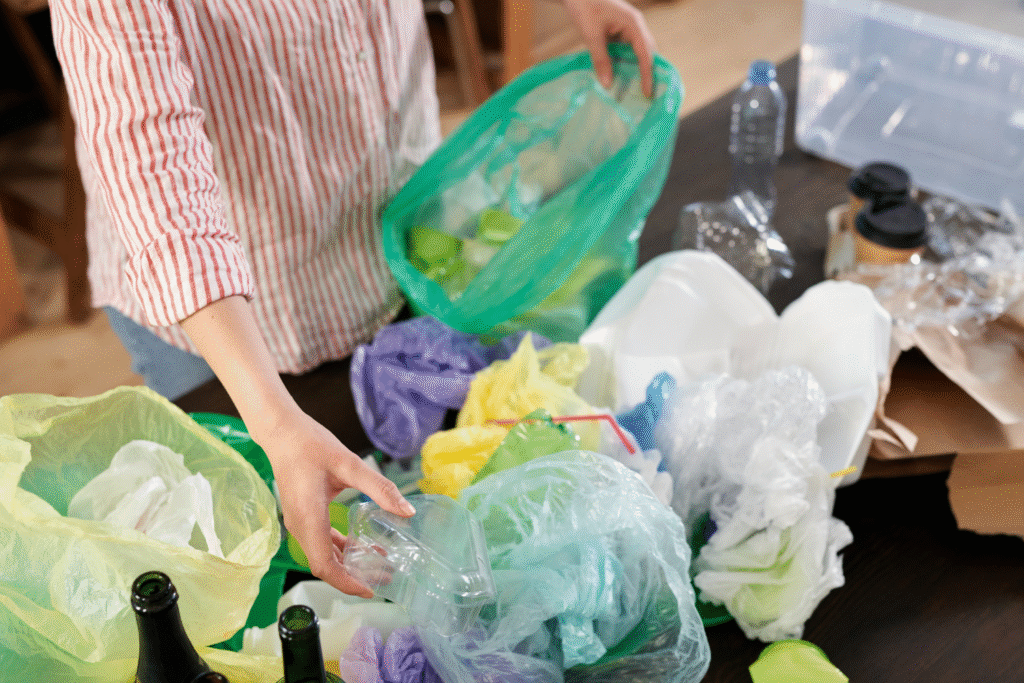
Paper and plastic shopping bags accumulate faster than most households can use them, leading to overstuffed closets and eventual disposal. These bags often feature reinforced construction designed to carry significant weight, making them suitable for numerous secondary applications. The variety of sizes creates a natural organization system for different household needs.
Reusable applications range from practical to creative, with sturdy paper bags serving as gift wrap alternatives or craft project storage. Plastic bags excel at lining small wastebaskets, protecting stored items from moisture, and organizing seasonal decorations. Many bags feature handles that make them convenient for donation trips or temporary storage during cleaning projects.
5. Egg cartons provide perfect compartmentalized storage that costs manufacturers millions to replicate.
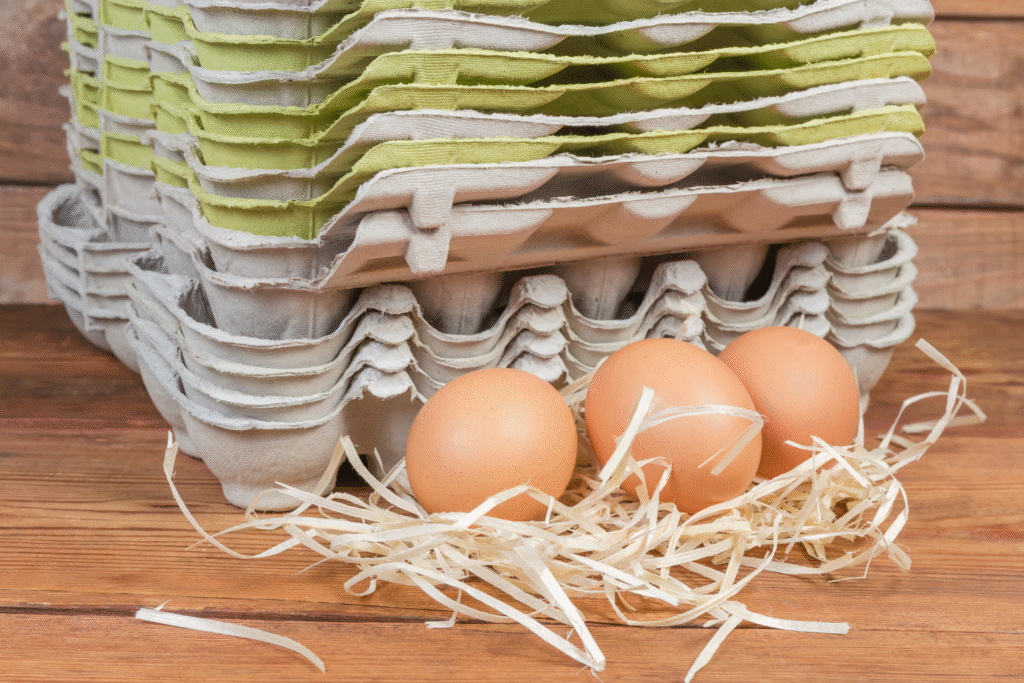
The molded design of egg cartons represents sophisticated packaging engineering that creates ideal conditions for protecting fragile items. Each compartment provides cushioning and separation that prevents damage during storage and transport. These features make empty cartons valuable for organizing small objects throughout the home.
Craft enthusiasts discover that egg cartons excel at sorting beads, buttons, and tiny hardware pieces that would otherwise create chaos in storage containers. Gardeners use them as seed starting trays, taking advantage of the biodegradable cardboard versions that can be planted directly in soil. The compact size fits perfectly in drawers and toolboxes while keeping everything visible and accessible.
6. Aluminum cans offer unlimited recycling potential while serving immediate reuse needs.
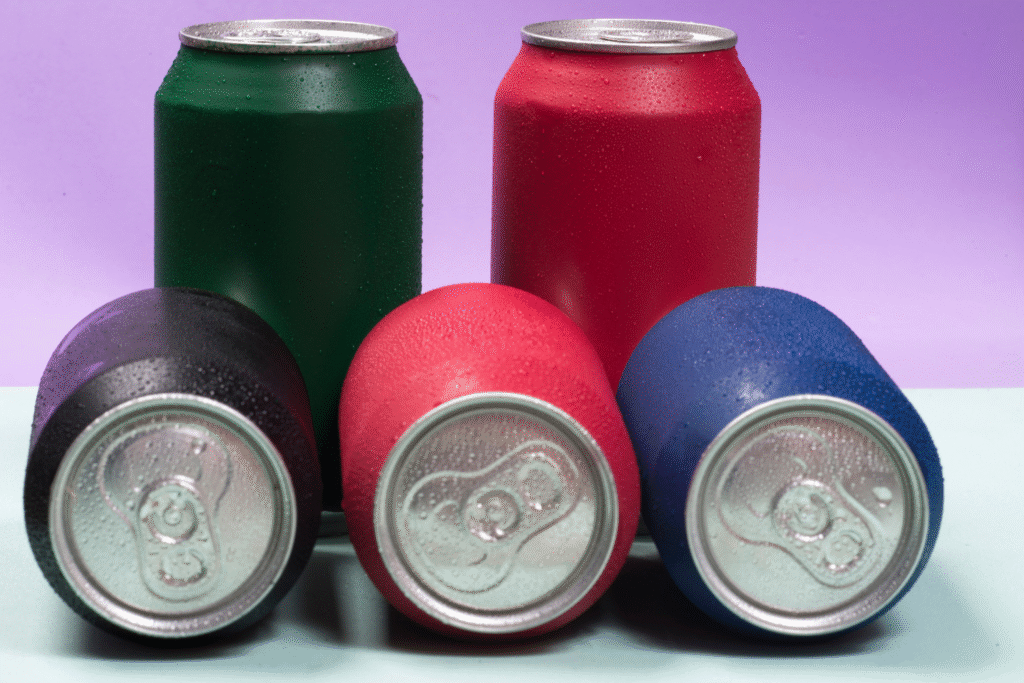
Unlike many materials that degrade through recycling processes, aluminum maintains its properties indefinitely, making it one of the most valuable items in household waste streams. However, reusing cans directly for household purposes often provides more immediate value than recycling. Clean aluminum cans resist rust and provide lightweight, durable containers for various applications.
Workshop organization benefits tremendously from repurposed cans that hold screws, nails, and small parts while remaining visible and easily accessible. Art and craft projects utilize their uniform size and smooth surfaces for painting, decorating, or creating custom storage solutions. The metal construction withstands temperature extremes, making them suitable for garage and outdoor storage needs.
7. Cardboard boxes create modular organization systems that rival expensive commercial alternatives.
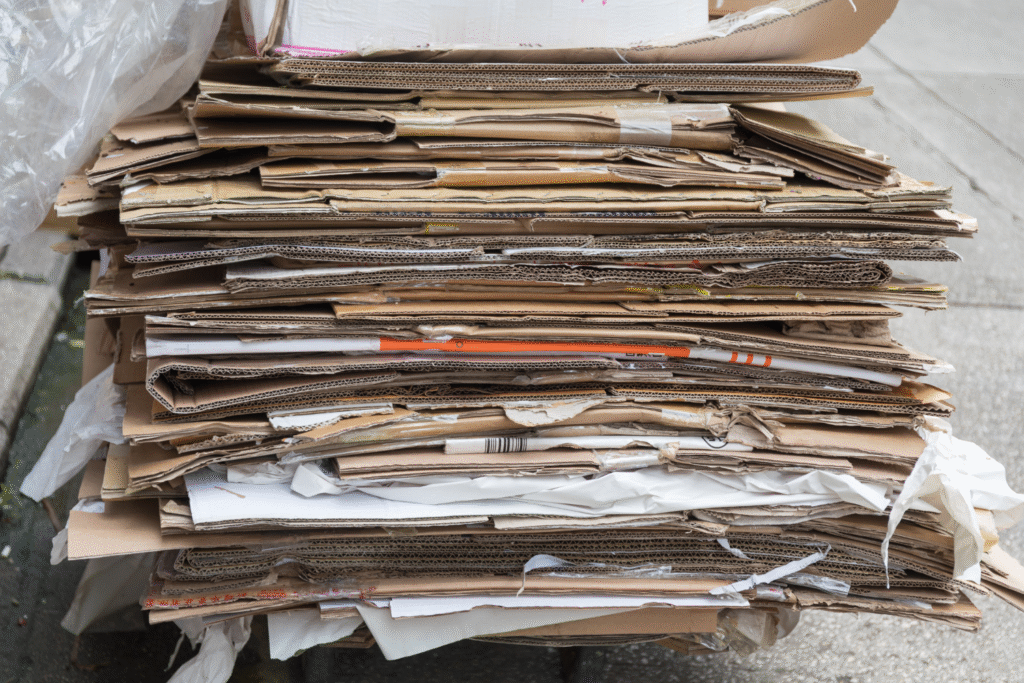
Online shopping delivers a constant stream of sturdy cardboard boxes that many people immediately break down for recycling. These boxes often feature high-quality construction designed to protect valuable contents during shipping, making them suitable for extended reuse as storage containers. The variety of sizes naturally accommodates different organizational needs throughout the home.
Storage applications multiply when you consider boxes as building blocks for custom closet systems, seasonal decoration storage, and donation collection. Many feature convenient carrying handles and stackable designs that maximize storage efficiency. The ability to cut and modify cardboard allows for custom sizing that perfectly fits specific spaces and needs.
8. Fabric softener sheets continue providing utility long after laundry duty ends.
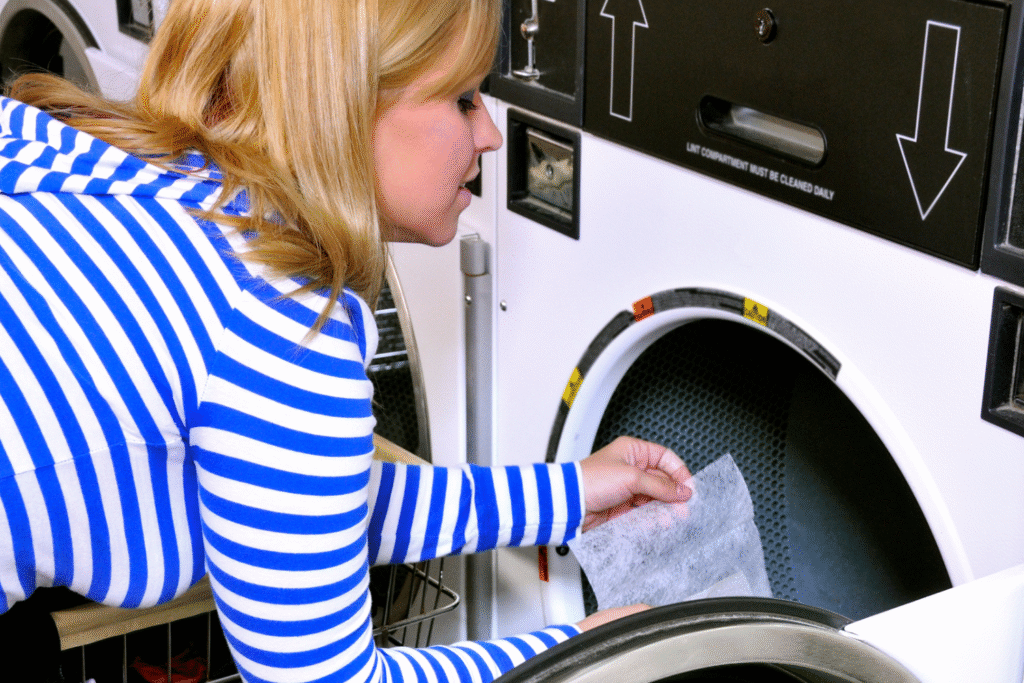
Used dryer sheets retain enough residual properties to serve multiple household functions despite appearing spent after their primary purpose. The synthetic fabric construction resists tearing while maintaining its dust-attracting properties, making these sheets valuable for cleaning applications throughout the home.
Automotive enthusiasts discover that used dryer sheets excel at removing dead bugs from car surfaces and reducing static in upholstery. Household cleaning benefits from their ability to repel dust from baseboards, blinds, and electronics while leaving behind a fresh scent. The thin, flexible material reaches into tight spaces that traditional cleaning cloths cannot access effectively.
9. Coffee grounds deliver garden benefits that commercial fertilizers struggle to match.
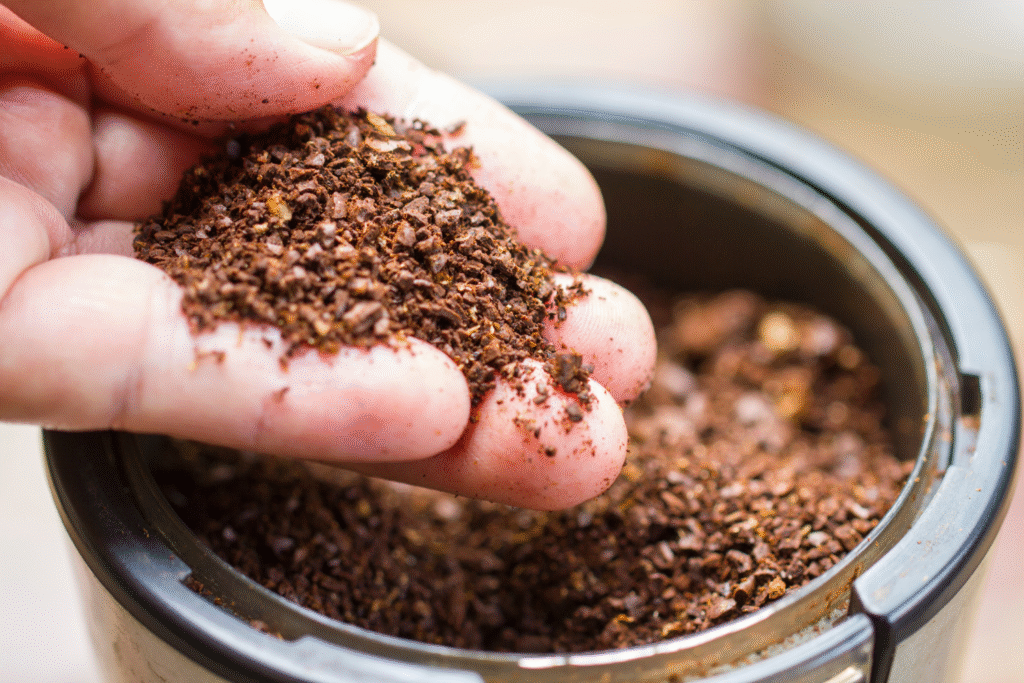
The millions of tons of coffee grounds that end up in garbage disposals and landfills represent a valuable soil amendment that gardeners typically purchase at premium prices. Used coffee grounds provide nitrogen, improve soil drainage, and attract beneficial earthworms while remaining completely natural and chemical-free.
Composting applications benefit from the balanced acidity that coffee grounds contribute to organic matter breakdown. Direct soil application works well for acid-loving plants like blueberries and azaleas, while the texture improves drainage in clay soils. Many grounds still contain enough caffeine to deter slugs and other garden pests naturally.
10. Wine corks possess unique properties that make them irreplaceable for certain applications.
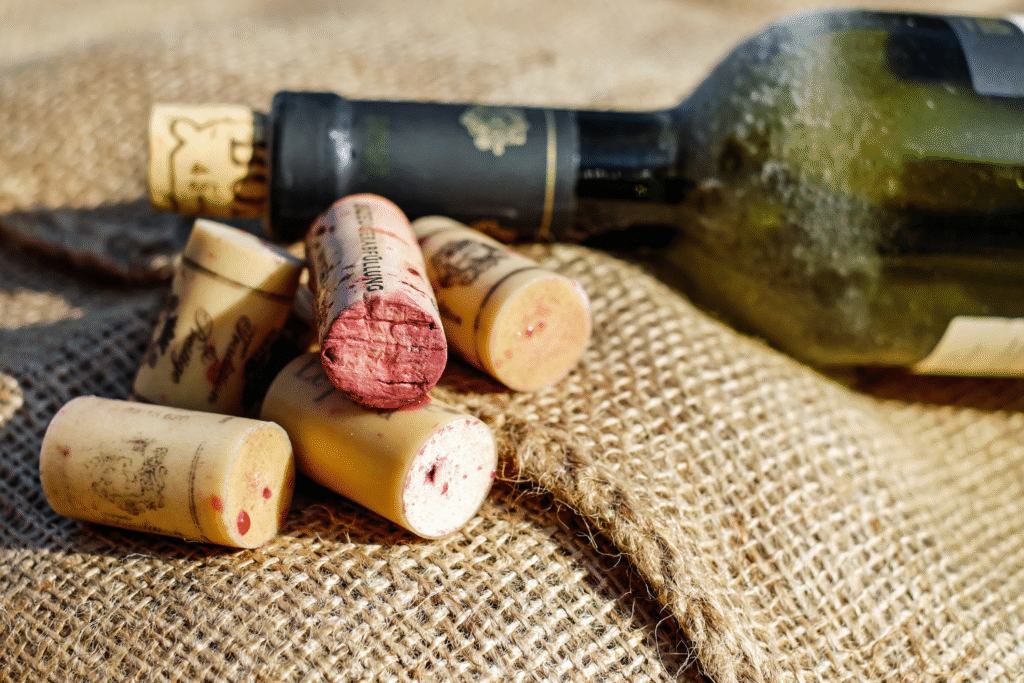
Natural cork’s cellular structure creates exceptional insulation and shock absorption properties that synthetic alternatives cannot replicate effectively. These characteristics, combined with cork’s resistance to moisture and decay, make discarded wine corks valuable for numerous household applications beyond their original purpose.
Craft projects benefit from cork’s easy cutting and natural aesthetic appeal, while practical applications take advantage of its grip-enhancing properties for tool handles and drawer pulls. The material’s acoustic properties make it excellent for reducing noise in workshops and music rooms, while its natural antimicrobial properties suit it for bathroom and kitchen applications.
